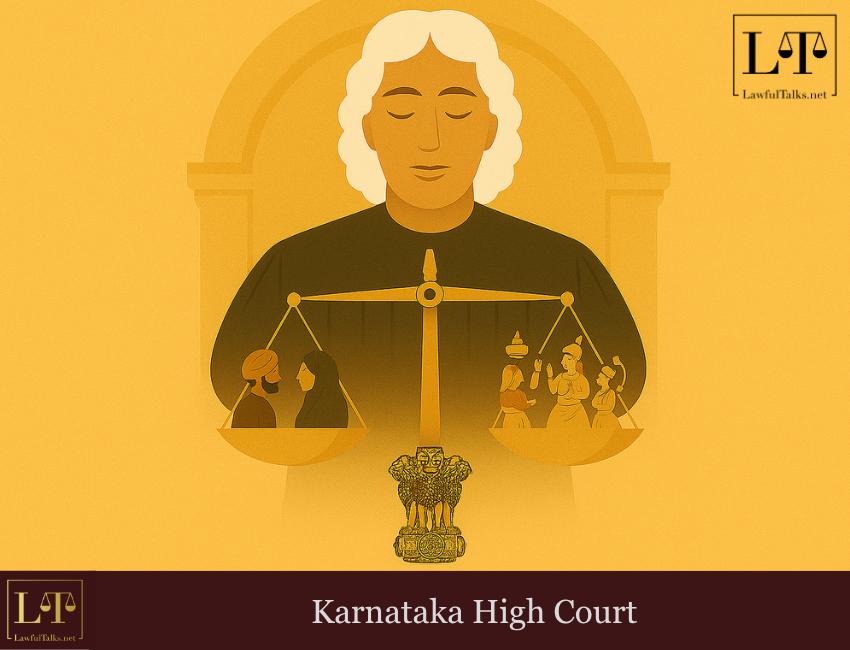Allahabad HC Sets Aside Afzal Ansari's Conviction, Allows Him to Continue as MP

Acknowledging the long-standing harmony between the communities in the Hyderabad-Karnataka area, Justice M.I. Arun of the Karnataka High Court stated, “The salvation of the country lies in identifying human beings as a human being and as an Indian with the other identities playing a secondary role.” In a significant ruling, relevant authorities were then directed to make an informed and balanced decision after considering the views of all stakeholders.

Emphasizing that no community can compel another to perform acts they oppose, the court said “A community has a right to celebrate a festival without provoking the other communities. However, a particular community cannot force another community to do an act, which they despise, only on the ground that it has been done traditionally by them.”
Facts:
Petitioner Madiga Dandora who hails from the Madiga community, a Dalit group based in Tumkur village, filed a plea in the Karnataka High Court. The dispute arose against the backdrop of celebration of the Muharram festival in the Hyderabad-Karnataka region, traditionally known for its communal harmony where Hindus and Muslims jointly celebrate festivals.
In Tumkur, Muharram celebrations involve worship of the Hindu deity Kashimalli and a folk dance known as ‘Alai Bhosai Kunitha,’ with active participation from various communities, including Dalits. Historically, members of the Madiga community were required to beat the halige (a percussion instrument) during these celebrations. This tradition started to meet with resistance from the Madigas, as they felt that it advanced notions of untouchability. This led to communal tensions between upper caste Hindus and the Madiga community.
The petitioner sought a writ of mandamus to direct local authorities to consider their positions to halt these public festivities to prevent further communal disharmony. In response, the Additional Government Advocate stated that under the prevailing conditions, it was inadvisable to proceed with the festivities.
Justice Arun, while observing how a festival once celebrated with communal unity had become a source of division, remarked that human identity and national identity must transcend caste or community lines. Additionally, the court pointed out that while the state should support celebrations that foster unity and harmony, it also has a duty to recognize when they put communities at risk of violence.
Accordingly, the High Court disposed of the petition with directions to the local authorities to consider the Madiga community’s representations and decide on the conduct of the celebrations after consulting all affected parties. It clarified, “It is needless to state that, if the festivities are gone ahead with, no one can compel the Madiga community to beat the halige (a type of percussion instrument) and it is the duty of the State to give adequate protection for the participants.”
Case Title: MADIGA DANDORA v. THE STATE OF KARNATAKA AND ANR
Counsel for Petitioner: Advocate Vinay Swamy C
Counsel for Respondent: AGA Mallikarjun Sahukar





























































































































































































































































































































































































































































































































































































































































































































































